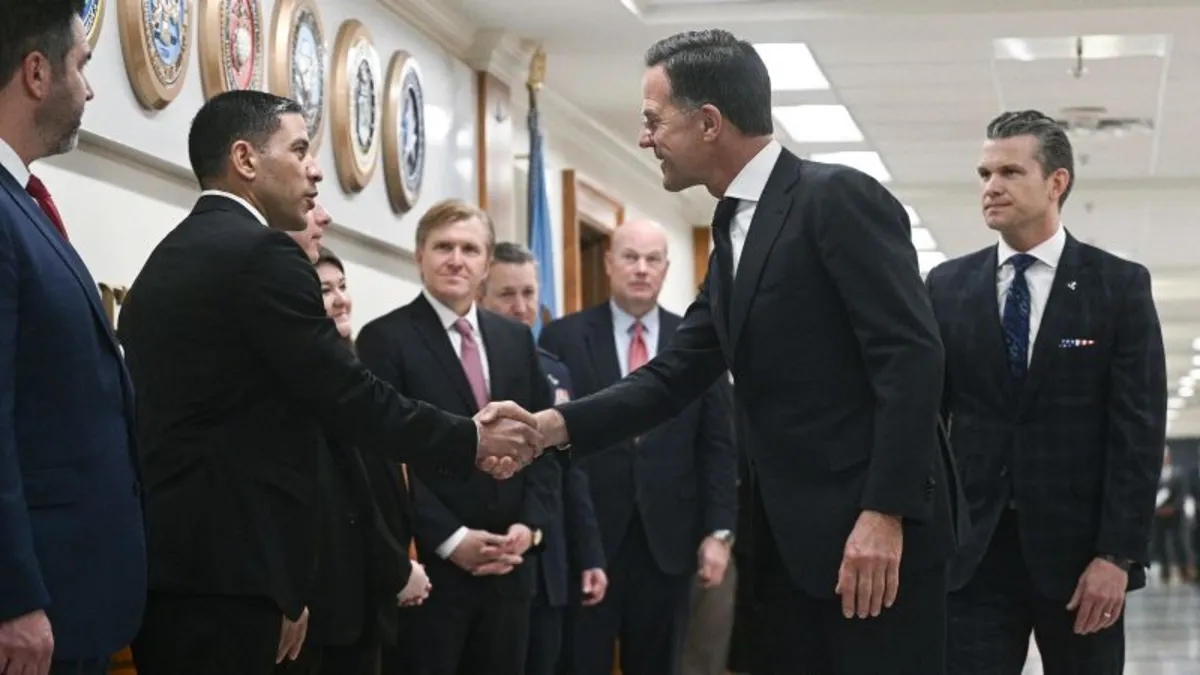
Last month, a significant controversy erupted when it was revealed that Secretary of Defense Pete Hegseth was using the Signal app to discuss sensitive military operations, a violation of established Pentagon policy. Following this revelation, one of Hegseth's closest aides, Col. Ricky Buria, made an unusual request to the Defense Department’s chief information officer: to grant an exception that would allow Hegseth to continue using Signal freely. This inquiry raised eyebrows among senior Pentagon officials, particularly because it came from a military officer rather than Hegseth’s civilian chief of staff.
Before the Atlantic reported on Hegseth’s use of Signal for detailed military discussions, Buria had been advocating for Hegseth to receive an additional desktop computer in his office, ostensibly to facilitate personal communications. The Secretary's office is a secure environment where cell phones are typically forbidden. While the Cybersecurity and Infrastructure Agency recommends using Signal for high-risk individuals, the Department of Defense (DoD) explicitly states that Signal is “NOT authorized to access, transmit, or process non-public DoD information.” Requests for exceptions can be submitted to the chief information officer, but it remains unclear if Hegseth received such an exception or if he continued using the app post-controversy.
In a statement to CNN, Sean Parnell, the chief Pentagon spokesman, confirmed that “the Secretary of Defense’s use of communications systems and channels is classified.” However, he emphasized that Hegseth has never used—and does not currently use—Signal on his government computer. Parnell did not elaborate on the presence of another computer in Hegseth's office with Signal installed, which has further fueled speculation.
Col. Ricky Buria, a career Marine with a history of combat deployments, has quickly ascended to a vital role in Hegseth's administration. Formerly an aide to Defense Secretary Lloyd Austin, Buria submitted his retirement papers to the Marine Corps last week. Sources indicate that he plans to remain at the Pentagon as a senior civilian adviser to Hegseth and is even a candidate to be appointed as Hegseth's new chief of staff, following the transition of Joe Kasper to a different role.
Buria’s transition from military assistant to a senior adviser is notably uncommon, especially considering his close association with Austin. Upon taking office, Hegseth acted swiftly to eliminate other “holdover” military officials from previous administrations. Reports suggest that Buria’s rapid rise in Hegseth's inner circle is indicative of Hegseth's increasing paranoia about leaks and his desire for a tightly-knit team. Following the termination of two senior advisers over alleged leaks, Hegseth has relied heavily on Buria, his wife, and his lawyer for counsel.
Hegseth’s confidence in Buria is clear, as he has assigned him crucial responsibilities typically reserved for higher-ranking officials. Buria has routine access to Hegseth’s personal and government devices, and he has been seen in various public engagements, including meetings with foreign leaders. This starkly contrasts his previous role under Austin, where he was often relegated to a background position.
Despite his newfound influence, questions remain about Buria’s qualifications to serve as Hegseth’s chief of staff. Some former officials express skepticism regarding whether the White House would support such an appointment, given Buria’s military background and the current political climate. The transition from military aide to a political role is seen as an unlikely path, with concerns that Buria may lack the necessary political acumen to navigate senior-level interactions effectively.
As Buria has become more entrenched in Hegseth's circle, he has started taking a more active role in advising on political and policy matters, which some officials view as overly casual. His recent activity on social media, including joining X and engaging with posts from prominent political figures, indicates a shift towards a more political presence. This change raises eyebrows, particularly given Buria’s previous non-political demeanor during his tenure under Austin.
The developments surrounding Secretary of Defense Pete Hegseth and Col. Ricky Buria highlight significant shifts within the Pentagon's leadership dynamics. With the implications of Hegseth's use of the Signal app still unfolding, and Buria's ascent in the ranks, the situation underscores the complexities of military and political intersections in contemporary defense operations.